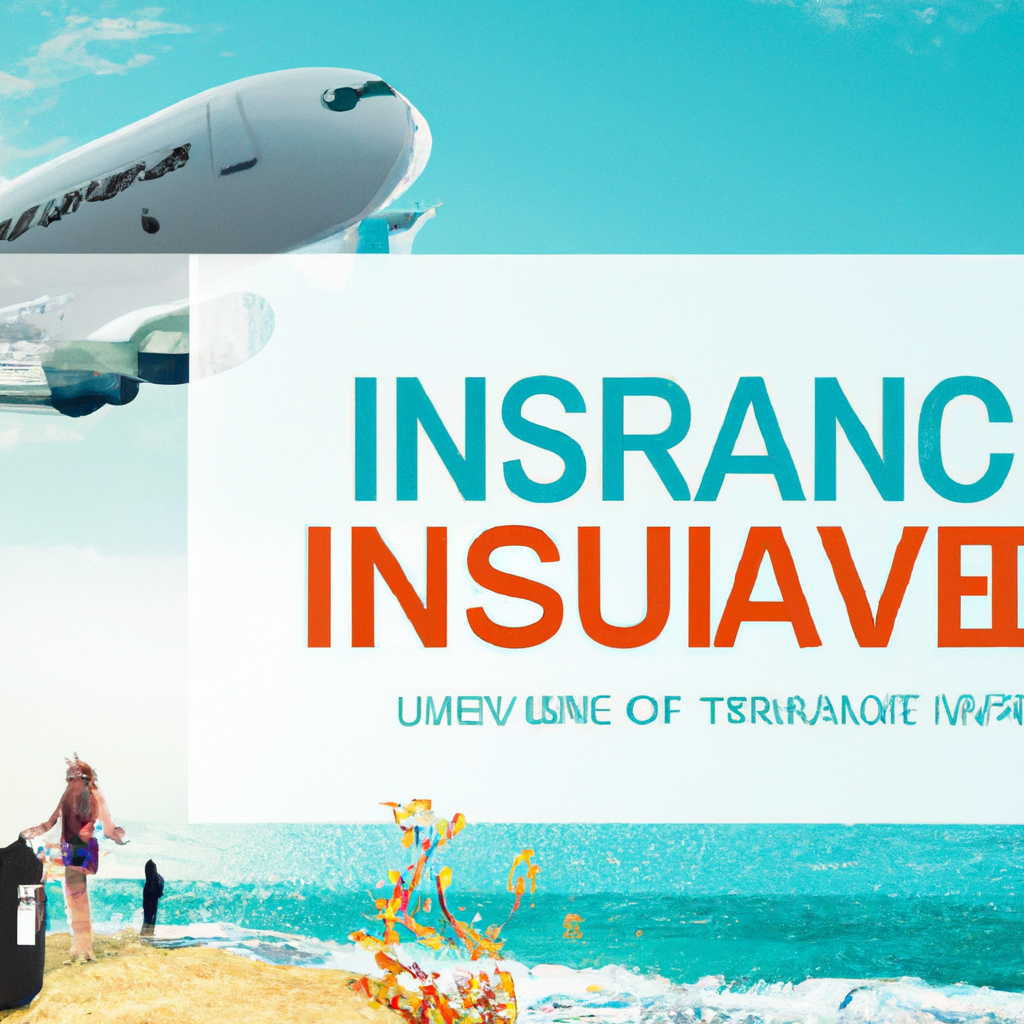
How Do I Find Reliable Travel Insurance?
If you’re planning a trip and want to ensure that you have peace of mind throughout your travels, finding reliable travel insurance is essential. But with so many options available, it can be overwhelming to know where to start. Whether you’re embarking on a once-in-a-lifetime adventure or a quick weekend getaway, this article will guide you on how to find the most trustworthy travel insurance that suits your needs.

What is Travel Insurance?
Definition of travel insurance
Travel insurance is a type of insurance coverage that provides financial protection and assistance to travelers who encounter unexpected events or emergencies while away from home. It typically includes coverage for medical expenses, emergency evacuation, trip cancellation or interruption, lost baggage, and delayed or missed flights. Travel insurance policies can vary in terms of coverage limits, exclusions, and premiums, so it is important to carefully review and understand the terms and conditions of the policy before purchasing.
Importance of travel insurance
Travel insurance is crucial because it offers peace of mind and protection against unforeseen circumstances that can disrupt your travel plans and wreak havoc on your finances. Whether you are traveling domestically or internationally, travel insurance safeguards you from various potential risks, such as medical emergencies, trip cancellations, lost belongings, or flight delays. It provides financial reimbursement for eligible expenses, ensuring that you are not burdened with unexpected costs and enabling you to focus on enjoying your trip without worry.
Determining Your Coverage Needs
Assessing your travel plans
Before purchasing travel insurance, it is important to assess your travel plans and identify the specific risks and coverage needs associated with your trip. Consider factors such as the destination, duration of the trip, planned activities, and the potential for unforeseen events. For example, if you are embarking on an adventurous outdoor adventure, you may require coverage for medical emergencies, evacuation, and trip interruption. Alternatively, if you are traveling for business purposes, you may want to focus on coverage for trip cancellation, luggage loss, and flight delays.
Considering your health condition
It is vital to take into account your health condition when determining your travel insurance needs. If you have pre-existing medical conditions, you should ensure that your travel insurance policy provides coverage for any related expenses. Some policies may exclude coverage for pre-existing conditions unless you purchase additional coverage or meet specific criteria. Disclose any relevant medical information to the insurance provider to avoid potential claim denials or disputes.
Valuables and luggage coverage
Travel insurance often includes coverage for lost or stolen luggage as well as personal belongings. Evaluate the limits and terms of coverage for your valuables to ensure that they adequately protect your belongings. Take note of any exclusions, such as specific types of items or limitations on reimbursement amounts. Consider purchasing additional coverage or a separate policy if your belongings exceed the coverage limits provided by your travel insurance.

Researching Insurance Providers
List of reputable insurance providers
When searching for travel insurance, it is important to rely on reputable insurance providers to ensure reliability and financial stability. Some well-known and reliable insurance providers include Allianz Global Assistance, Travel Guard, and World Nomads. These providers have established themselves in the travel insurance industry and offer a range of comprehensive coverage options to suit different travel needs.
Checking customer reviews and ratings
To gauge the quality and customer satisfaction of insurance providers, it is helpful to read customer reviews and ratings. Websites such as Trustpilot, Consumer Affairs, and the Better Business Bureau offer valuable insights into the experiences of other travelers with different insurance providers. Pay attention to both positive and negative reviews, looking for recurring themes or specific issues that may impact your decision-making process.
Comparing coverage and prices
Once you have identified several insurance providers, it is essential to compare the coverage options and prices they offer. Consider the specific coverage limits and benefits provided by each policy, such as medical expense coverage, trip cancellation coverage, and baggage loss coverage. Take note of any differences in deductibles, exclusions, and additional services offered. Compare the costs of the policies to ensure you are getting the best value for your money without compromising on essential coverage.
Understanding Policy Coverage
Medical expenses coverage
One of the essential components of travel insurance is medical expense coverage. This coverage helps protect you from costly medical bills if you experience illness or injury while traveling. It typically includes coverage for doctor visits, hospital stays, prescription medication, and emergency medical transportation. Review the coverage limits and any exclusions related to pre-existing medical conditions to ensure they align with your specific needs.
Emergency evacuation coverage
Emergency evacuation coverage is designed to cover the costs associated with medical transportation in case of a serious medical emergency that requires you to be transported to the nearest suitable medical facility. This coverage can be crucial when traveling to remote or high-risk destinations where local medical facilities may be inadequate. Review the policy to understand the criteria for activating emergency evacuation coverage, as well as any geographical limitations or exclusions.
Trip cancellation coverage
Trip cancellation coverage reimburses you for prepaid and non-refundable expenses if you need to cancel or interrupt your trip due to unforeseen circumstances. Covered reasons for trip cancellation may include illness, injury, death of a family member, natural disasters, or travel advisories. It is important to review the policy terms and conditions to understand the specific covered reasons and any documentation requirements for filing a claim.
Lost baggage coverage
Lost baggage coverage provides reimbursement for the replacement or repair of your lost or stolen luggage and personal belongings during your trip. This coverage can be particularly valuable if you are traveling with valuable items or if you are relying on checked baggage for essential items. Be aware of any coverage limits, deductibles, and exclusions related to specific types of belongings or situations.
Delayed or missed flight coverage
Travel insurance often includes coverage for delayed or missed flights, providing reimbursement for necessary expenses such as meals, accommodations, and transportation while you await alternative arrangements. This coverage can be especially helpful if you have connecting flights or time-sensitive travel plans. Review the policy to understand the specific waiting period or time threshold required for the coverage to be activated.

Exclusions and Limitations
Exclusions to be aware of
It is essential to familiarize yourself with the exclusions of your travel insurance policy to avoid any unexpected surprises or claim denials. Common exclusions may include acts of war, self-inflicted injuries, participation in high-risk activities, and pre-existing medical conditions. Take note of any specific country or region exclusions, as well as any limitations regarding the duration of coverage or age restrictions.
Understanding policy limitations
In addition to exclusions, travel insurance policies may have certain limitations that can impact your coverage. For example, there may be a cap on the total amount of coverage provided or restrictions on the types of losses eligible for reimbursement. Review the policy carefully to understand these limitations and assess whether they align with your specific needs and travel plans.
Policy Costs and Payment Options
Factors influencing insurance costs
Several factors can influence the cost of travel insurance, including your age, destination, trip duration, and the level of coverage you require. Generally, the older you are, the higher the premium may be due to increased risk factors. Similarly, traveling to high-risk or remote destinations may result in higher premiums. Consider these factors when requesting quotes from insurance providers to get a better understanding of the potential cost.
Getting quotes from multiple providers
To ensure you are getting the best coverage and price, it is advisable to obtain quotes from multiple insurance providers. This allows you to compare the offerings and make an informed decision based on your specific needs. Ensure that you provide accurate and detailed information about your trip to receive accurate quotes. Remember to consider the reputation, customer reviews, and coverage options in addition to the price when making your final decision.
Payment options
Travel insurance policies typically offer various payment options to accommodate different preferences. You may choose to pay the full premium upfront or opt for installment payments. Some insurance providers also offer the flexibility to pay online or over the phone. Review the payment options provided by the insurance provider and select the one that is most convenient for you.

Reading and Evaluating Policy Terms
Understanding policy jargon and terms
Travel insurance policies can be complex and filled with industry-specific jargon. Take the time to read and familiarize yourself with the policy terms to ensure you understand the coverage and limitations. If there are any terms or phrases that are unclear, don’t hesitate to reach out to the insurance provider for clarification. It is important to have a clear understanding of what you are covered for to avoid any surprises when filing a claim.
Evaluating policy exclusions and limitations
Analyze the policy exclusions and limitations to ensure that they align with your specific needs and travel plans. Be aware of any exclusions that may leave you vulnerable to uncovered expenses or situations. Evaluate the limitations to determine if they are reasonable and acceptable to you. If there are specific concerns or coverage gaps, consider reaching out to the insurance provider to discuss potential options or add-on coverages.
Reviewing cancellation and refund policies
In addition to the coverage details, it is important to review the cancellation and refund policies of the insurance provider. Understand the window of time within which you can cancel the policy for a refund and any potential administrative fees or penalties that may apply. Reviewing these policies will help you make an informed decision and may provide peace of mind if you need to cancel or modify your coverage after purchase.
Consulting with a Travel Agent or Expert
Seeking professional advice
If you are unsure about the most suitable travel insurance coverage for your specific travel plans, consider seeking advice from a travel agent or insurance expert. These professionals have a deep understanding of the different policies available and can guide you in selecting the right coverage based on your needs and budget. They can also help explain the fine print and provide recommendations based on their experience and expertise.
Utilizing travel agents as a resource
Travel agents can be a valuable resource when it comes to understanding and navigating travel insurance. They can provide insights into the specific risks associated with your destination and activities, helping you determine the appropriate coverage. Additionally, many travel agents work closely with reputable insurance providers and can help you assess different policies based on their knowledge and relationships.

Confirming Provider’s Reputation and Legitimacy
Verifying provider’s credentials
Before finalizing your travel insurance purchase, it is crucial to verify the credentials and legitimacy of the insurance provider. Check if they are registered and licensed with the appropriate regulatory bodies in your country. Confirm that they have a valid financial stability rating, which indicates their ability to fulfill claims and pay out reimbursements. Conducting this research will help protect you from potential fraudulent providers or unscrupulous practices.
Checking regulatory compliance
Insurance providers are usually subject to specific regulations and compliance requirements. Research the regulatory framework in your country and ensure that the insurance provider you choose adheres to these guidelines. Look for indicators such as industry accreditations or affiliations with reputable organizations. By choosing a provider that is compliant with regulations, you can have confidence in their commitment to consumer protection and ethical business practices.
Customer Support and Claim Process
24/7 customer support availability
When purchasing travel insurance, it is important to consider the availability and quality of customer support offered by the insurance provider. Emergencies and unexpected situations can occur at any time, so having access to 24/7 customer support can be invaluable. Evaluate the insurance provider’s customer service channels, such as phone, email, or online chat, and ensure they are responsive and capable of providing timely assistance.
Ease of filing claims
Review the claims process of the insurance provider to understand how to file a claim in the event of an emergency or covered loss. Ideally, the claims process should be straightforward, with clear instructions and minimal paperwork requirements. Look for a provider that offers online claims submission or a dedicated claims portal to streamline the process. Additionally, consider the provider’s reputation for prompt and fair claims settlement, as this is a critical aspect of the insurance experience.
Claim settlement process
Understanding the claim settlement process is crucial in ensuring a smooth and efficient claims experience. Review the policy terms and conditions to determine the documentation required, such as incident reports, medical records, or receipts. Take note of any specific timeframes within which claims must be filed and the expected turnaround time for claim resolution. If you have any questions or concerns about the claim settlement process, reach out to the insurance provider for clarification before making a purchase.
In conclusion, finding reliable travel insurance requires careful consideration of your coverage needs, thorough research of insurance providers, and a clear understanding of policy terms and conditions. By assessing your travel plans and health condition, researching reputable providers, and understanding the coverage, exclusions, and limitations, you can make an informed decision that ensures you have the necessary protection for your trip. Seek professional advice from travel agents or experts, verify the provider’s reputation and credentials, and consider the availability and quality of customer support and the ease of the claims process. With these steps in mind, you can confidently choose reliable travel insurance that provides peace of mind during your travels.




